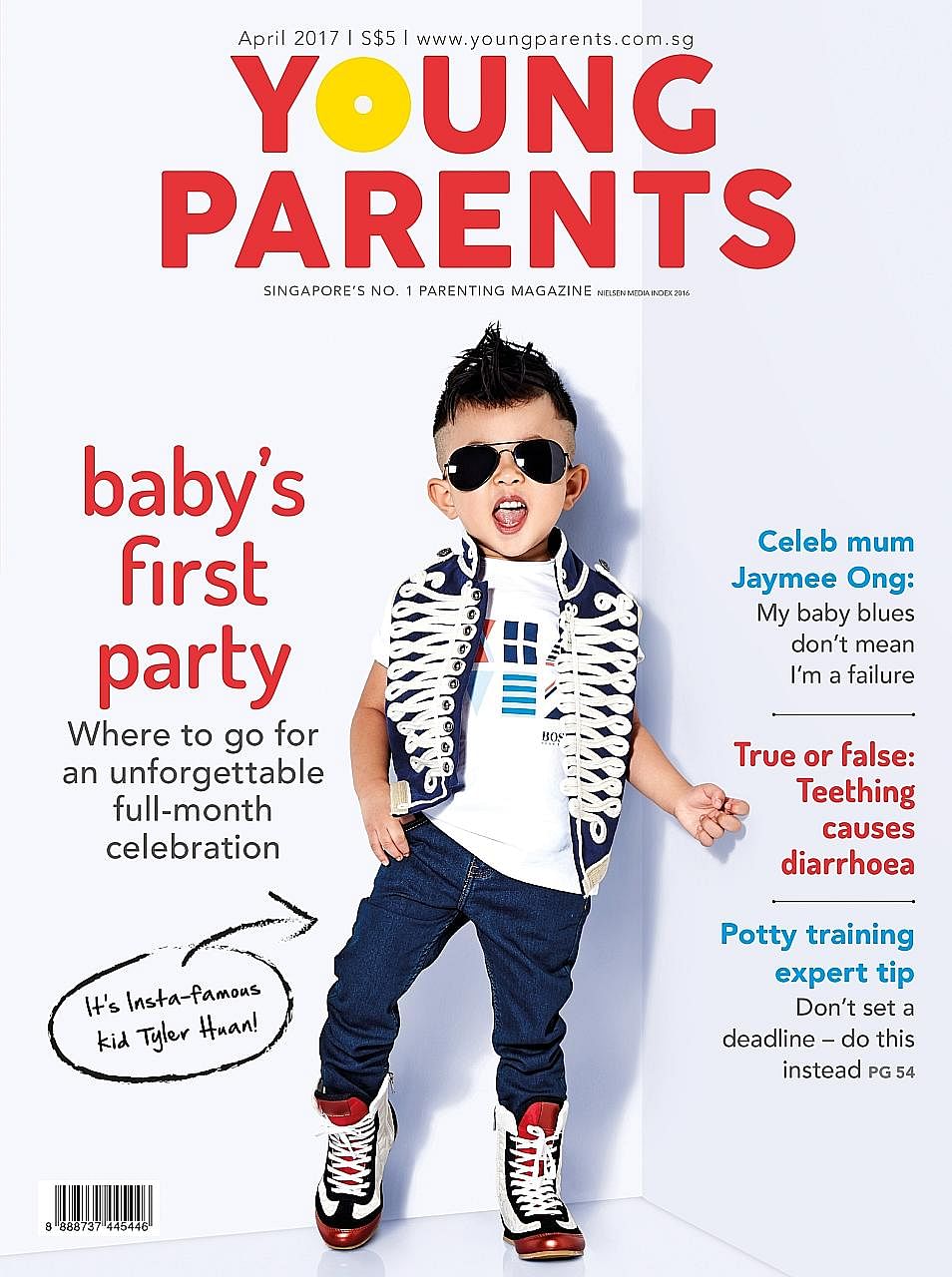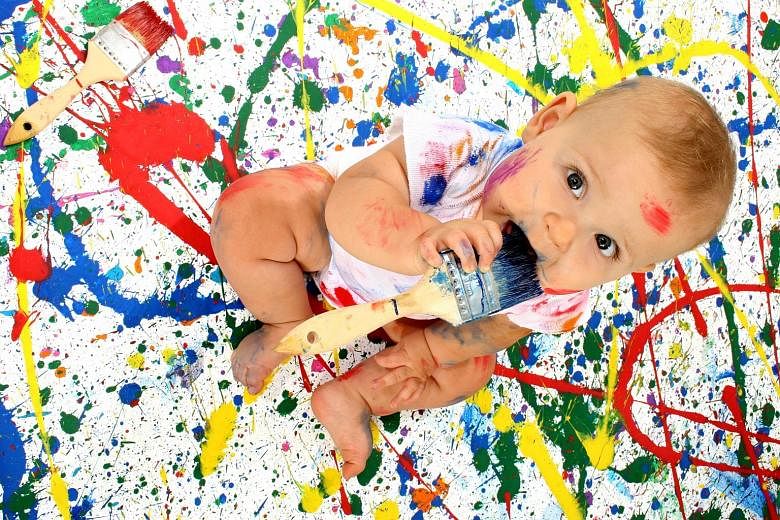Parents often worry when their baby has runny stools. However, an occasional bout of diarrhoea is nothing to worry about. Here are seven facts you should know:
1. Frequent runny stools
How much poop should you expect from a baby? The answer is a lot, especially if she is on breast milk, which has a natural laxative effect.
Your baby's bowel movements may be as frequent as seven to eight times a day.
They may also be as infrequent as once a week as breast milk is so well-digested that there may not be much left to be excreted, said Dr Ong Ian, a paediatrician at Thomson Paediatric Centre (Katong).
What is important is your baby feeds well and gains weight, and her poo is soft, she added.
Breastfed babies tend to have softer and more runny stools than formula-fed babies, Dr Ong said.
2. More watery stools than normal
An occasional bout of loose stools is no cause for alarm. But if she starts pooping more frequently and her stools look more watery than usual, she probably has diarrhoea.
See a doctor if she has watery stools for more than two days or if she is showing signs of dehydration or other symptoms, Dr Ong said.
Seek medical attention at once - if the condition seems to be worsening; your baby is younger than three months and has a fever above 38 deg C; she is older than three months and has a fever above 39 deg C; there is blood or mucus in her stools; and she appears to have severe tummy pain.
Her belly may look inflated. She may also cry non-stop, squirm a lot more than usual or pull up her legs.
3. It's a tummy bug, not teething
There are many reasons behind your child's diarrhoea. But there is no scientific proof that teething causes it.
A baby starts putting things into her mouth from five to six months of age, which coincides with the time teething begins, said Dr Zaw Lwin, a consultant from the department of emergency medicine at KK Women's and Children's Hospital.
He said: "When a child puts something into her mouth, there's a good chance that virus and bacteria can enter the body, as most items may not be clean."
In young children, diarrhoea and vomiting are usually due to a viral infection of the gastrointestinal tract, also commonly known as stomach flu, said Dr Zaw.
Other culprits include side effects from medication such as antibiotics, which kill both good and bad bacteria in the large intestine and can cause tummy upset.
The diarrhoea could also be due to a food or milk allergy. Watch out for signs such as vomiting and loose stools during bowel movements.
4. Dehydration is greatest danger
Diarrhoea usually clears up on its own. Most infants do not need medication, although doctors may occasionally prescribe a probiotic to help restore healthy gut bacteria in your baby, Dr Ong said.
Instead, the biggest concern is dehydration from excessive fluid loss. In babies and young children, this can be dangerous and sometimes fatal.
See a doctor when you spot danger signs like a dry tongue and lips, sunken eyes, fewer wet nappies, lethargy and an increasing heart rate.
5. Offer fluids, but hold the juice
Encourage your baby to take plenty of fluids, but avoid giving just plain water. Dr Zaw said this is because both fluids and electrolytes (salts) are lost when she has diarrhoea or is vomiting.
Instead, continue breastfeeding your baby but nurse her more frequently. "Even if she poos shortly after feeds, she'd have retained some nutrients as breast milk is well-digested by the body.
"Breastfeeding provides comfort and the natural antibodies in breast milk may help her recover faster," Dr Ong said.
If your baby is on formula, carry on with her usual feeds.
For babies above the age of six months, you can offer oral rehydrating solutions, rice or porridge water, and barley water in small, frequent amounts, Dr Ong said.
You can also give watered-down juice, but steer clear of sugary drinks, she added.
6. Protect your baby's bum
Stools from diarrhoea tend to be acidic. Soiled diapers and frequent wiping can irritate your baby's tender skin, Dr Ong said.
To prevent diaper rash, she recommends changing the diapers often. Use cotton wool and water to clean your baby, then pat dry.
Apply a generous amount of barrier cream containing zinc oxide or petroleum jelly with every nappy change. Air your baby's bottom every now and then.
7. Diarrhoea can be prevented
Half the battle is won if you are nursing your baby.
Breast milk contains antibodies that provide immunity against infections causing diarrhoea and vomiting, Dr Zaw said.

If you are using bottles or other feeding equipment, sterilise them properly before use by boiling them for at least five minutes.
Diarrhoea in young kids is often caused by germs transmitted from hand to mouth, so the best defence is good hand hygiene after using the toilet and before eating.
Consider giving your baby a rotavirus jab. Two doses of the vaccine before six months of age is another preventive measure, Dr Zaw said, as rotavirus is one of the more common viruses causing diarrhoea and vomiting in children.
•This article first appeared in Young Parents magazine. Young Parents, published by SPH Magazines is available in digital and print formats Go to www.youngparents.com.sg to subscribe and for more stories.

